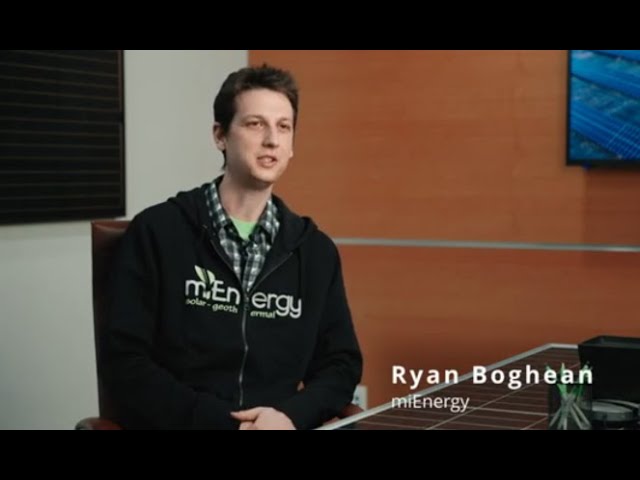
Introduction
The field of renewable energy is rapidly evolving, and with it comes the need for skilled professionals who can effectively manage projects that drive the transition towards sustainable energy solutions. A renewable energy project manager plays a crucial role in overseeing projects that range from solar and wind farms to hydroelectric plants and bioenergy facilities. To thrive in this dynamic environment, these managers must possess a diverse skill set that combines technical knowledge, leadership capabilities, and strategic thinking.
Essential Technical Skills
At the core of a successful renewable energy project manager’s expertise are the technical skills specific to the energy sector. These skills not only enhance project execution but also ensure compliance with industry standards and regulations.
1. Understanding of Renewable Energy Technologies
A solid grasp of various renewable energy technologies is fundamental. This includes:
- Solar Energy: Knowledge of photovoltaic systems and solar thermal technologies.
- Wind Energy: Familiarity with wind turbine design, site assessment, and energy yield calculations.
- Hydropower: Understanding the principles of hydroelectric systems and their environmental impacts.
- Biomass and Bioenergy: Awareness of biomass conversion processes and biogas production.
- Geothermal Energy: Insights into geothermal resource assessment and drilling technologies.
2. Project Management Methodologies
Proficiency in project management methodologies is critical for ensuring that projects are delivered on time and within budget. Key methodologies include:
- Agile: A flexible approach that allows for iterative development and responsiveness to change.
- Waterfall: A linear approach that is effective for projects with well-defined stages and deliverables.
- PRINCE2: A structured project management method that emphasizes organization and control.
3. Environmental and Regulatory Knowledge
Renewable energy projects must adhere to a range of environmental regulations and standards. A project manager should be familiar with:
- Local and National Policies: Understanding the laws and regulations that govern renewable energy in specific regions.
- Environmental Impact Assessments (EIAs): Conducting assessments to evaluate the potential effects of projects on the environment.
- Permitting Processes: Navigating the complexities of obtaining necessary permits and approvals.
Interpersonal Skills
In addition to technical skills, interpersonal skills are vital for a renewable energy project manager. These skills facilitate collaboration and communication among diverse stakeholders.
1. Leadership and Team Management
A successful project manager must exhibit strong leadership qualities to guide their team effectively. This includes:
- Motivating Team Members: Inspiring the team to achieve project goals and maintain high morale.
- Conflict Resolution: Addressing and resolving conflicts that may arise within the team or with stakeholders.
- Delegation: Assigning tasks based on team members’ strengths and expertise.
2. Communication Skills
Effective communication is essential in managing projects and stakeholder relationships. Key aspects include:
- Clear Messaging: Conveying project objectives and updates clearly to team members and stakeholders.
- Active Listening: Understanding the concerns and feedback of team members and stakeholders.
- Presentation Skills: Delivering compelling presentations to convey project progress and results to stakeholders.
3. Stakeholder Engagement
Engaging stakeholders is crucial for project success. This involves:
- Identifying Stakeholders: Recognizing all parties involved, including investors, regulatory bodies, and community members.
- Building Relationships: Establishing trust and rapport with stakeholders to foster collaboration.
- Managing Expectations: Ensuring stakeholders have realistic expectations regarding project timelines and outcomes.
Strategic Thinking and Problem Solving
The ability to think strategically and solve problems is a hallmark of an effective renewable energy project manager. This includes:
1. Strategic Planning
Project managers must develop strategic plans that align with the overall goals of the organization and the renewable energy sector. This involves:
- Setting Objectives: Defining clear, measurable goals for each project phase.
- Resource Allocation: Efficiently allocating resources to maximize project outcomes.
- Risk Management: Identifying potential risks and developing mitigation strategies.
2. Innovative Problem Solving
Challenges are inevitable in project management. A successful manager should be able to:
- Analyze Problems: Break down complex issues to understand their root causes.
- Develop Solutions: Brainstorm and evaluate potential solutions to overcome challenges.
- Implement Changes: Effectively execute changes to project plans as needed.
Financial Acumen
Understanding the financial aspects of renewable energy projects is critical for a project manager. This includes:
1. Budgeting and Financial Planning
A renewable energy project manager should be adept at:
- Creating Budgets: Developing comprehensive budgets that cover all project phases.
- Cost Management: Monitoring expenditures to ensure projects stay within budget.
- Financial Reporting: Preparing reports that provide stakeholders with insights into project financial performance.
2. Funding and Investment Strategies
Securing funding is often a critical aspect of renewable energy projects. A project manager should understand:
- Investment Models: Familiarity with different funding options, including grants, loans, and private investments.
- Financial Incentives: Knowledge of government incentives and subsidies that support renewable energy projects.
- Return on Investment (ROI): Calculating the potential ROI to attract investors and stakeholders.
Adaptability and Continuous Learning
The renewable energy sector is characterized by rapid technological advancements and changing regulations. Therefore, a project manager must be:
1. Adaptable to Change
Being adaptable means:
- Embracing New Technologies: Staying informed about emerging technologies and their applications in renewable energy.
- Adjusting Strategies: Modifying project strategies in response to changing circumstances.
- Learning from Experience: Reflecting on past projects to identify lessons learned and improve future performance.
2. Committed to Professional Development
A commitment to continuous learning is essential for success. This can be achieved through:
- Training and Certifications: Pursuing relevant certifications, such as PMP (Project Management Professional) or specific renewable energy credentials.
- Networking: Engaging with industry professionals through conferences and workshops.
- Staying Updated: Keeping abreast of industry trends, regulations, and best practices through research and publications.
Conclusion
In summary, the role of a renewable energy project manager is multifaceted and requires a combination of technical expertise, interpersonal skills, strategic thinking, financial acumen, and adaptability. As the demand for renewable energy continues to grow, the importance of skilled project managers will only increase. By honing these essential skills, professionals in this field can lead successful projects that contribute to a sustainable future.

